The Cornell Lab Bird Academy › Discussion Groups › Inspiring Investigations through Citizen Science › Intro to Inquiry
-
Bird AcademyBird AcademyAfter reading the different definitions of inquiry in the chapter and considering responses from other course participants, what is your concept of “inquiry?” Through the discussion board below, share your definition of inquiry, and an image of the concept map you drew. You can take a picture and upload it to the discussion below.You must be enrolled in the course to reply to this topic.
-
This quotation from D. Llewellyn helped me to understand what inquiry is: "Curosity and inqusitiveness already lie within the individual, awaiting opportunities to be uncovered and made known." (pg. XIV, Inquiry Within). I realized upon this quote, that inquiry is educators inspiring students to question the world surrounding them and knowing that questions lead to more questions. The spark we ignite in them to ask questions and collect data to understand why is what matters. Inquiry is pondering and wondering but includes no answers at times. The questions are the answers. It leads to our exploration that builds our knowledge. My inquiry map shows my thinking. I look forward to sharing it with my students!

-
After reviewing D. Llewellyn's text on inquiry, I would define it as... "Inquiry is questioning that empowers an individual to conduct investigations, make observations, collect data, and use prior experiences to make conclusions about the world around them. " Note:
- Blue Star-Prior to Reading
- Green Star-After/During Reading

-
Inquiry is when someone has a wondering about something. They start to ask questions and make observations. They then create an investigation to answer their wondering. This often leads to more questions and might require some research. They collect data from the investigation, analyze the data,
 draw conclusions, and then finally share out about their wondering.
draw conclusions, and then finally share out about their wondering. -
To me, inquiry come from question about phenomenon around us. This can lead to doing some research about the phenomenon. The next step could be developing processes and procedures to make observations and record data. Once observations and data has been collected, we can look for patterns and analyze the data. We can then think about what scientific issues are relevant for an explanation. We can then evaluate our process, ask more questions, and make modifications for further inquiry.

-
My concept of inquiry is discovery through investigation. I believe that in order to begin an inquiry project, observations must be made, a question must be asked, and there must be a method of data collection to draw conclusions about the initial question.

-
The process of inquiry is about the way that the process of learning occurs. Inquiry is when the learner takes a more active approach in their own learning. They make discoveries through active exploration.

-
The inquiry process provides some structure (an endpoint; a process that can be explained/taught/repeated) to a very fluid/dynamic engagement of one's curiosity about the world around us. Inquiry is about WONDER and DISCOVERY and SHARING.

-
To me, inquiry is the use of problem solving and critical thinking skills to gain knowledge on a topic you are curious about. This can be done many ways, but to name a few: exploration, investigations, observations, asking questions.

-
I define inquiry as -- the process of building understanding through observations, posing questions, testing hypotheses, analyzing data, and presenting findings. It is built on imagination and curiosity and leaves room for many different approaches and conclusions. The image is my map and accompanying notes/thoughts.

-
Inquiry is a process of learning that is student-driven based on each individual's curiosity. Curiosity leads to the development of a question that the student can research by designing their own experiment. By exploring ways to answer their question, a student will develop critical thinking and problem-solving skills.

-
 Inquiry gives a reason to learn, a reason to search for more answers. Instead of memorizing data and facts that can be regurgitated at will. It puts all the different types of learners on the same level.
Inquiry gives a reason to learn, a reason to search for more answers. Instead of memorizing data and facts that can be regurgitated at will. It puts all the different types of learners on the same level. -
Inquiry begins at infancy and leads to a natural course of learning. Through inquiry we explore our unknown and take charge of our own learning. Inquiry results from our own desire to make sense of the world. It is exciting and intrinsically motivated. Our brains are more prepared to learn when it has chosen its own point of interest and is provided the control to answer its own questions, make its own investigations, and determine its own meaning.

-
I believe that inquiry is the mind trying to fill a gap. That gap being dissonance of some sort. Similar to cognitive, adaptive dissonance. This causes us to seek out ways to fill the gap that was created, such that we start asking questions or seeking out answers in other ways. This overall process is called curiosity. My concept map is a little different as I explored more into the philosophical side of things. I also didn't exactly follow the exact concept map that the text provides, there are many types of concept maps.

-
Inquiry is a wonderful way to get students to use their investigative skills. I like how it allows students to use their prior knowledge to help guide them to new information. I think the discussion is an important part of the process, allowing students to share ideas helping them to form new ideas from each other. Also much more engaging than direct instruction.
-
Inquiry leads us to question and explore our natural world. Through exploring we research, examine, investigate, observe, probe and dissect things around us. This leads us to collect data, build prototypes, modify existing objects, draw conclusions and share our results. Through inquiry we are lead to new questions and curiosity, because inquiry is not linear.

-
Inquiry has a similar pathway as the scientific method: pose a question, formulate a hypothesis, research and explore, and finally come to a conclusion that helps to answer the initial question. Inquiry involves being curious and open-minded. Inquiry-based learning must maintain neutrality such that it does not hinder "rabbit trails" and further questioning.

-
Inquiry is learning through hands on investigation. This process allows for deeper understanding of the world around us. Inquiry is led by the learner or student and not a set of facts to memorize. Inquiry is open-ended and exploratory.

-
Inquiry is the basis for learning about the world around us. Students and teachers alike can explore and ask question after question followed by experiments and research. Inquiry is an iterative process that requires back and forth, more questions, more research and willingness to ask more questions and change course when the unexpected happens. It really is the scientific method expanded to real life.

-
Inquiry is full of wonder and magic. It empowers learners to reach conclusions (or further questions) through their own actions and reasoning. It allows for "A-ha" moments and limitless discovery of the world around them. Unlike highly structured lesson plans, inquiry can inspire children to question everything around them and encourages them to truly SEE the world around them, and the relationship between all things.

-
Inquiry is an investigative process where curiosities and questions lead to investigations, critical thinking and experimentation until questions are answered and explained by analyzing data and observations.

-
Inquiry is such a simple concept that brings the wonder of curiosity to those that are learning and understanding about a particular subject by asking questions, investigating, exploring and discovering.

-
Inquiry is an authentic way that we respond to questions that arise from our experiences of the world, to attempt to understand or answer our questions through investigation.

-
Inquiry is a student-led process that stems from curiosity and questions. It inspires research including making observations, collecting data and leads to meaningful concepts and understanding.

-
Inquiry is a student-centered process, where students, driven by their curiosity and wonder, are trying to solve a problem, by asking questions, investigating, observing, collecting data, coming to conclusions. At they end of this process, they expand their knowledge, acquire problem-solving, teamworking skills etc
 and even may reconstruct their current understanding.
and even may reconstruct their current understanding.
Read More:
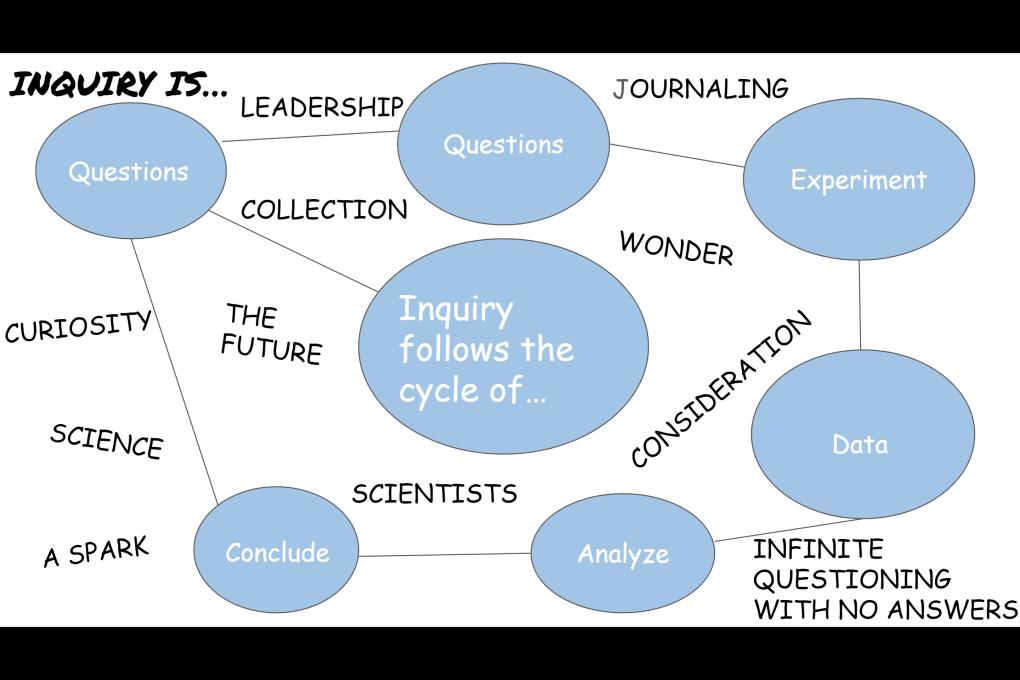
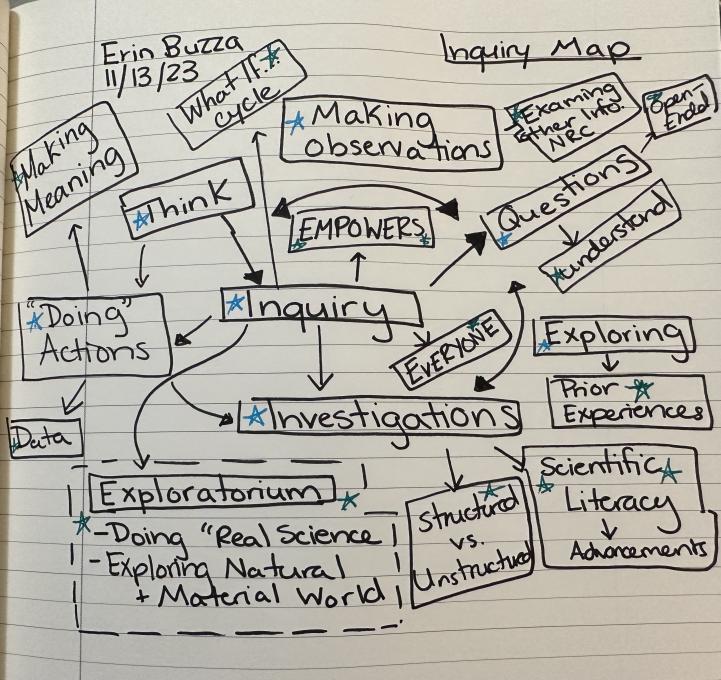
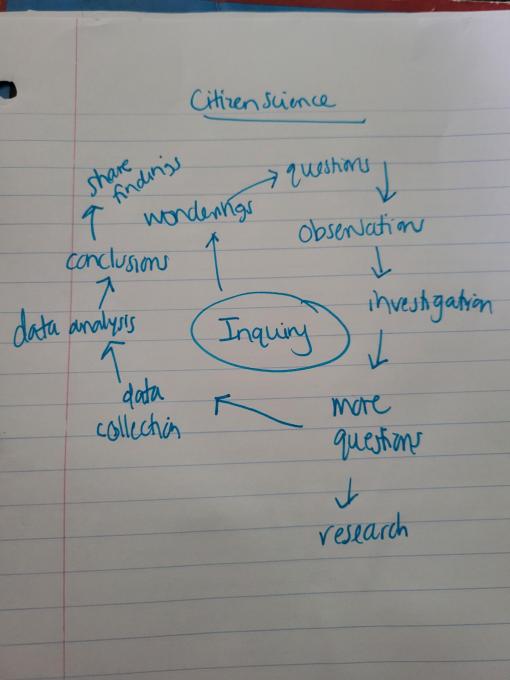 draw conclusions, and then finally share out about their wondering.
draw conclusions, and then finally share out about their wondering. 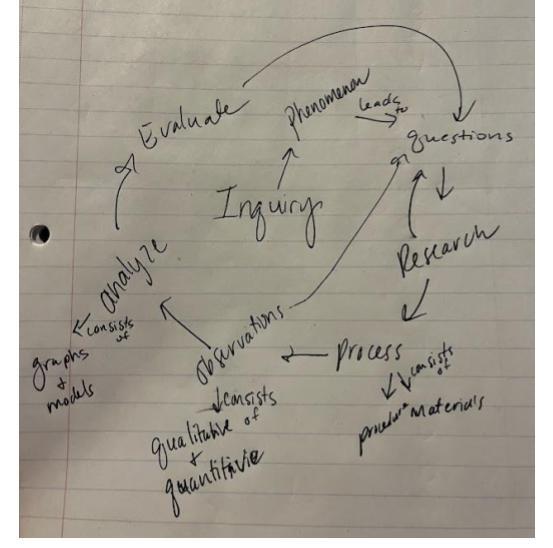
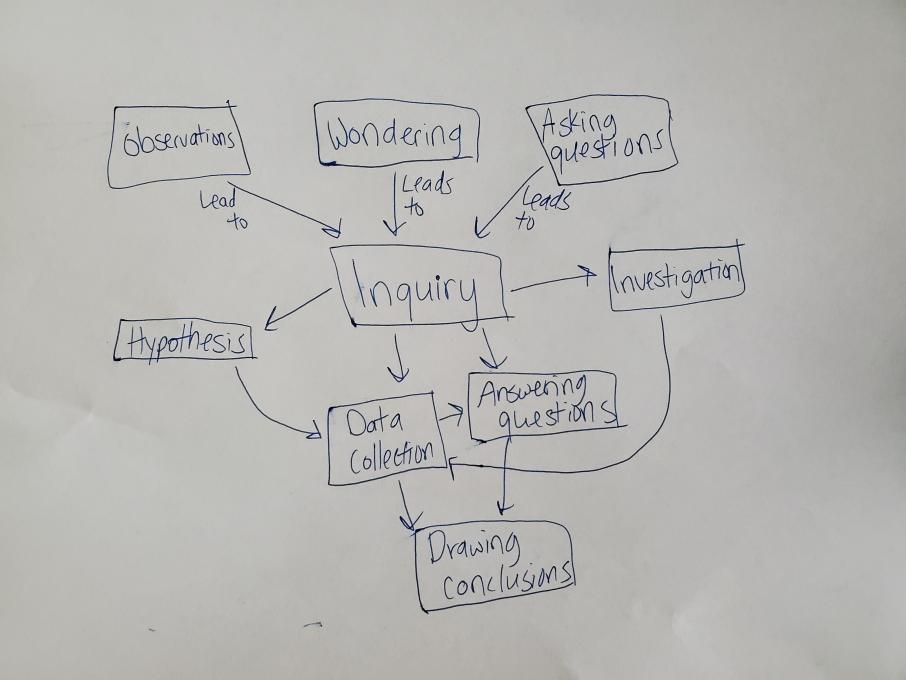
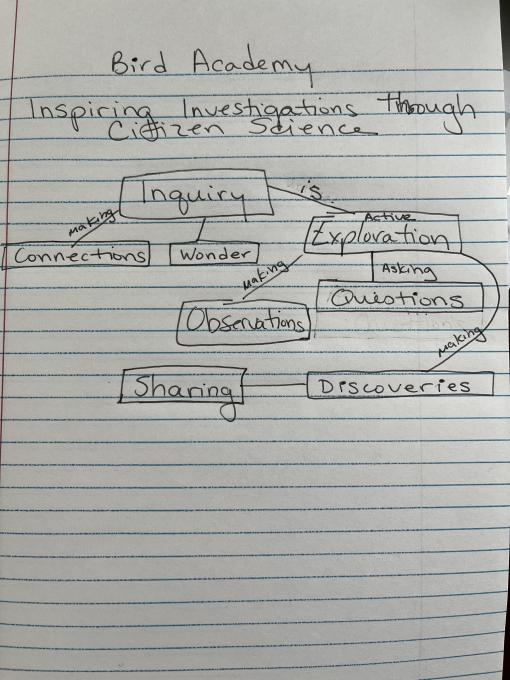
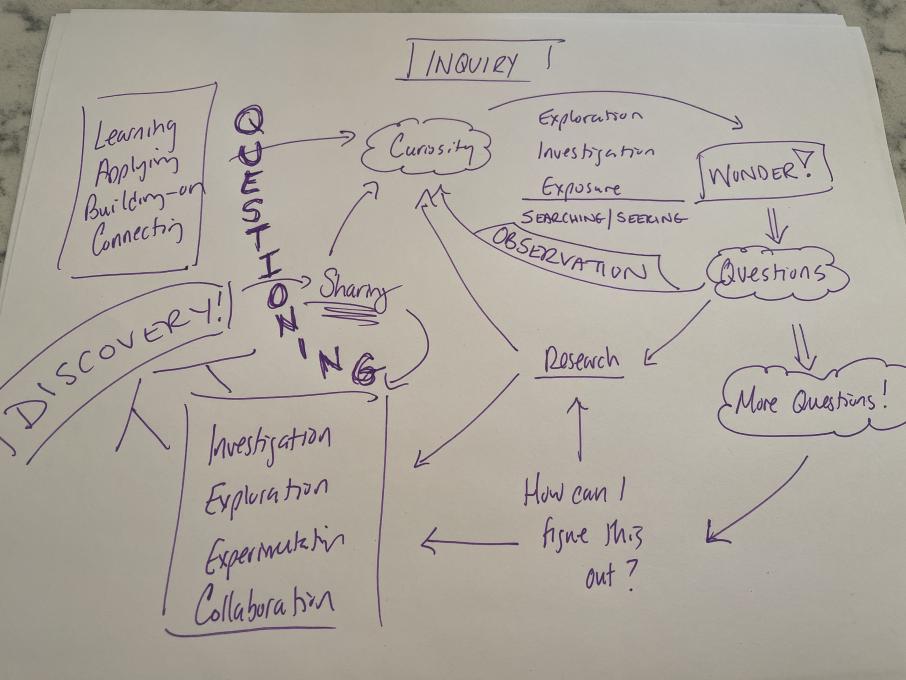
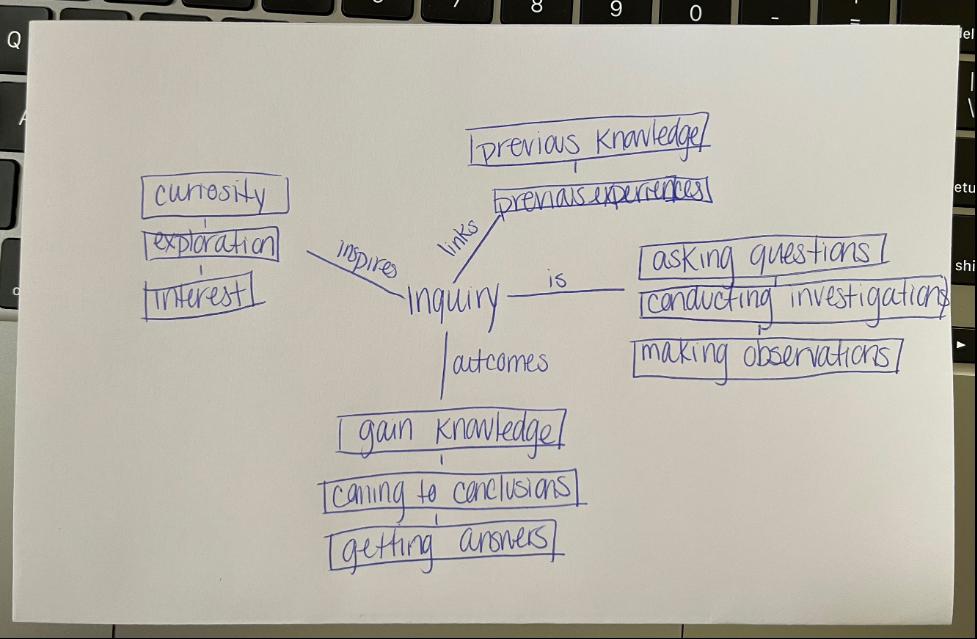
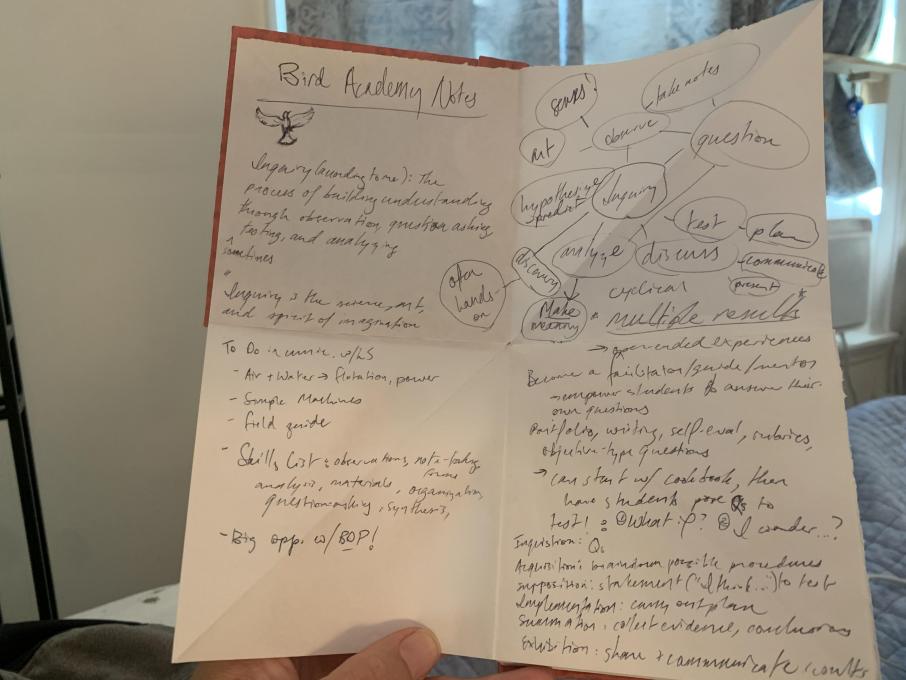
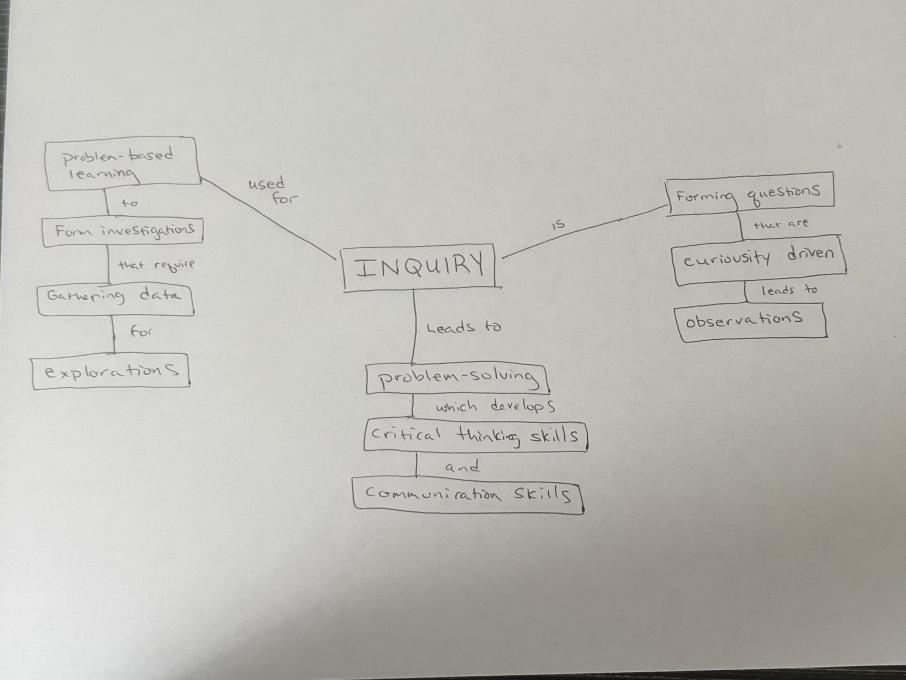
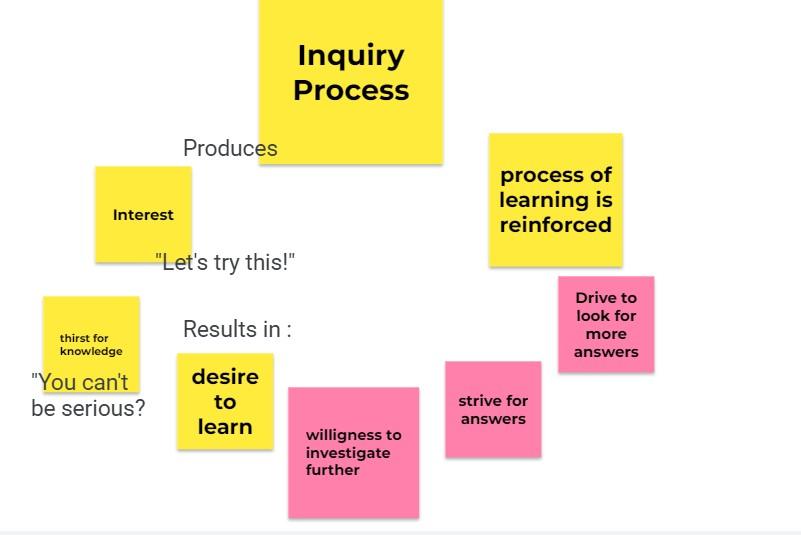 Inquiry gives a reason to learn, a reason to search for more answers. Instead of memorizing data and facts that can be regurgitated at will. It puts all the different types of learners on the same level.
Inquiry gives a reason to learn, a reason to search for more answers. Instead of memorizing data and facts that can be regurgitated at will. It puts all the different types of learners on the same level. 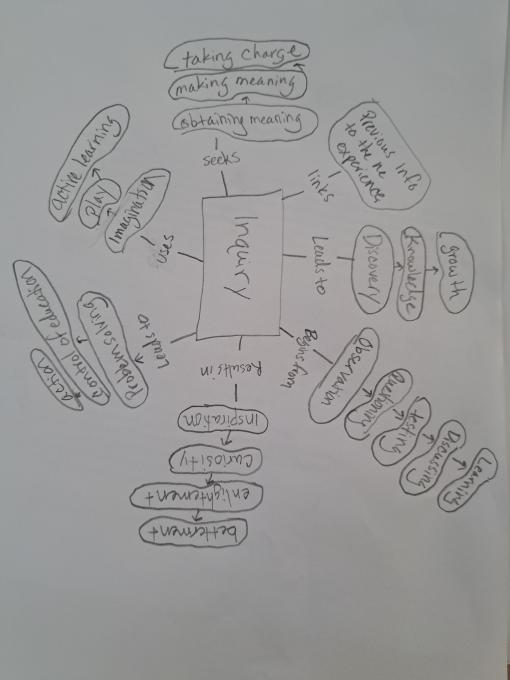
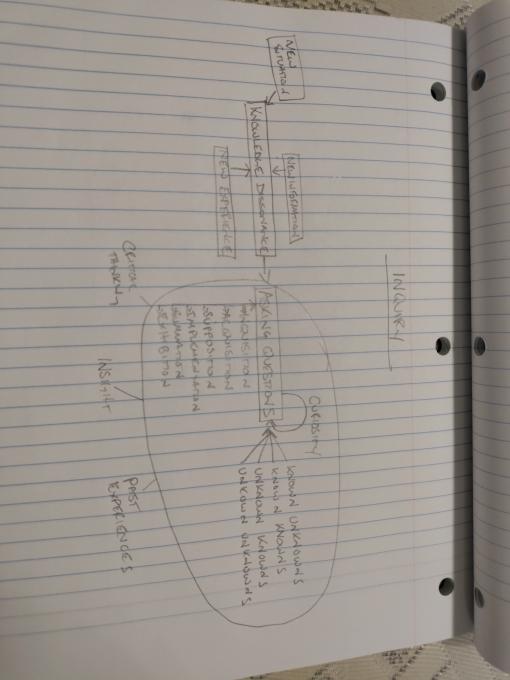
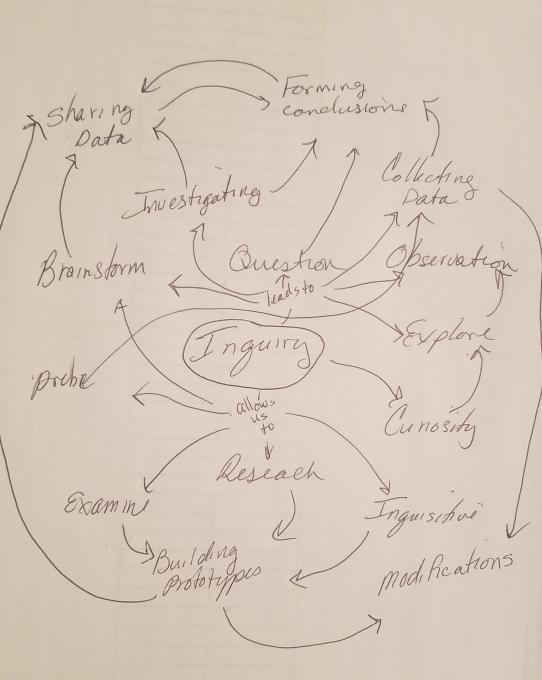
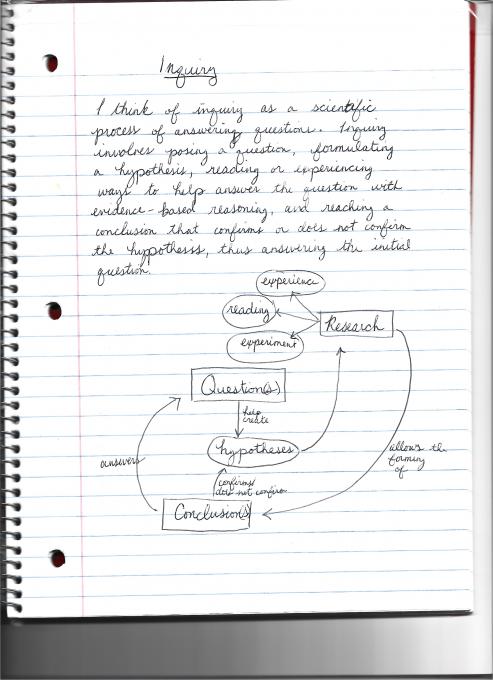
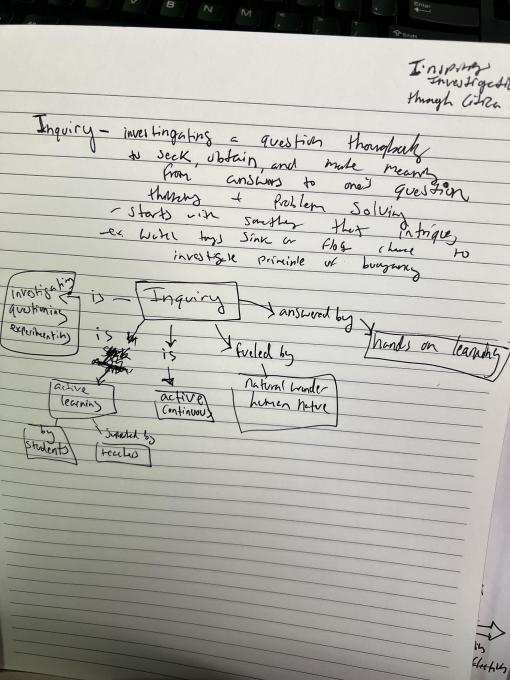
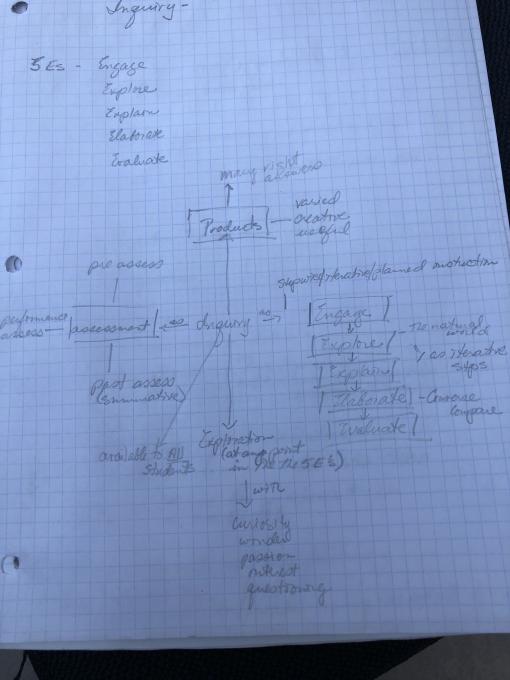
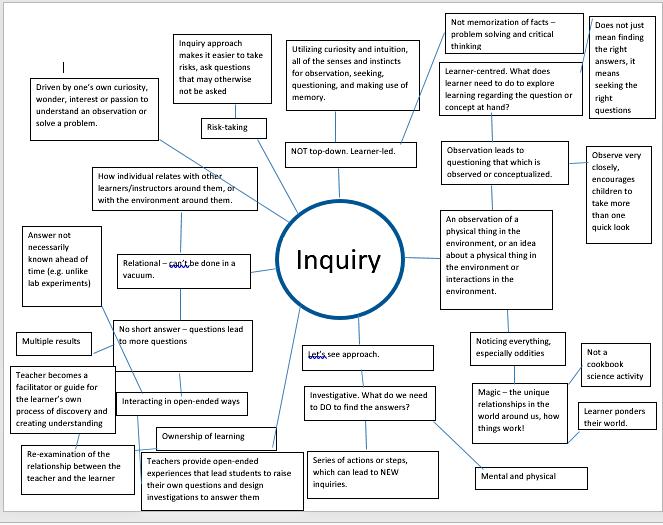
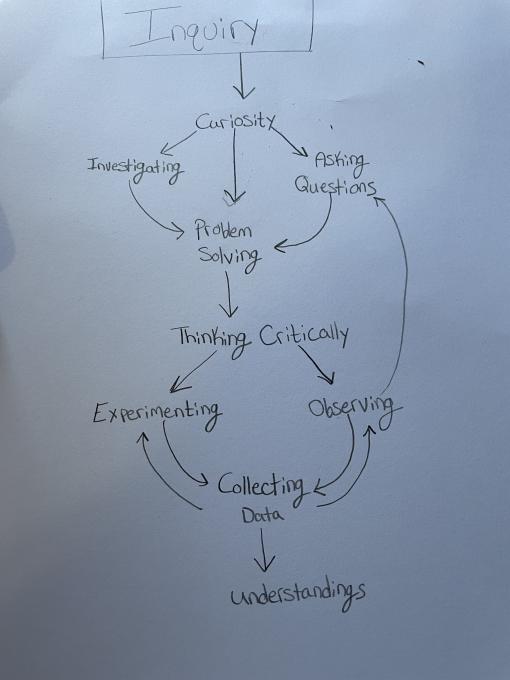
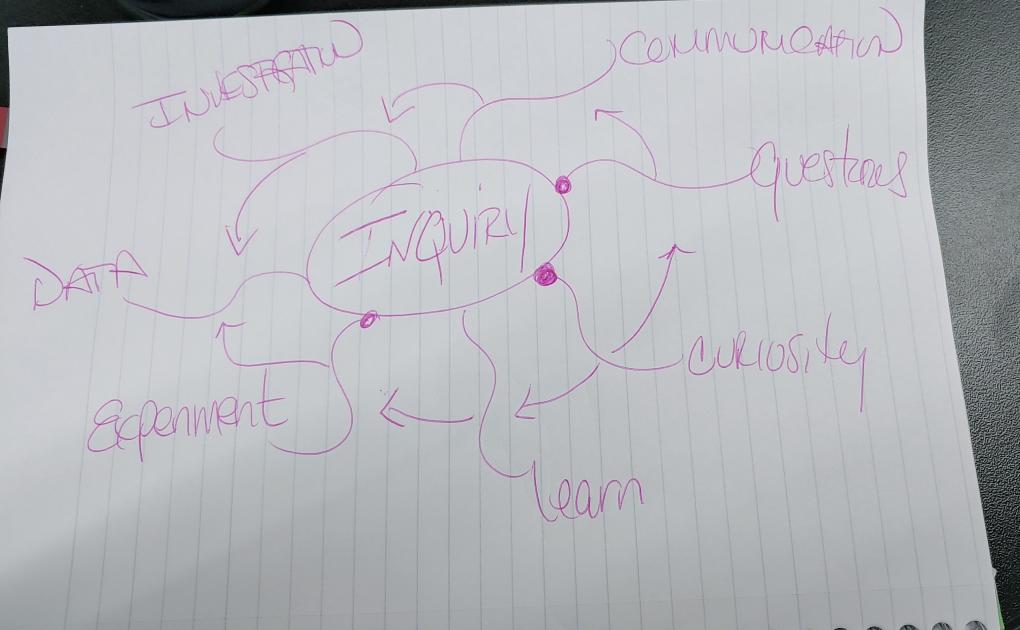
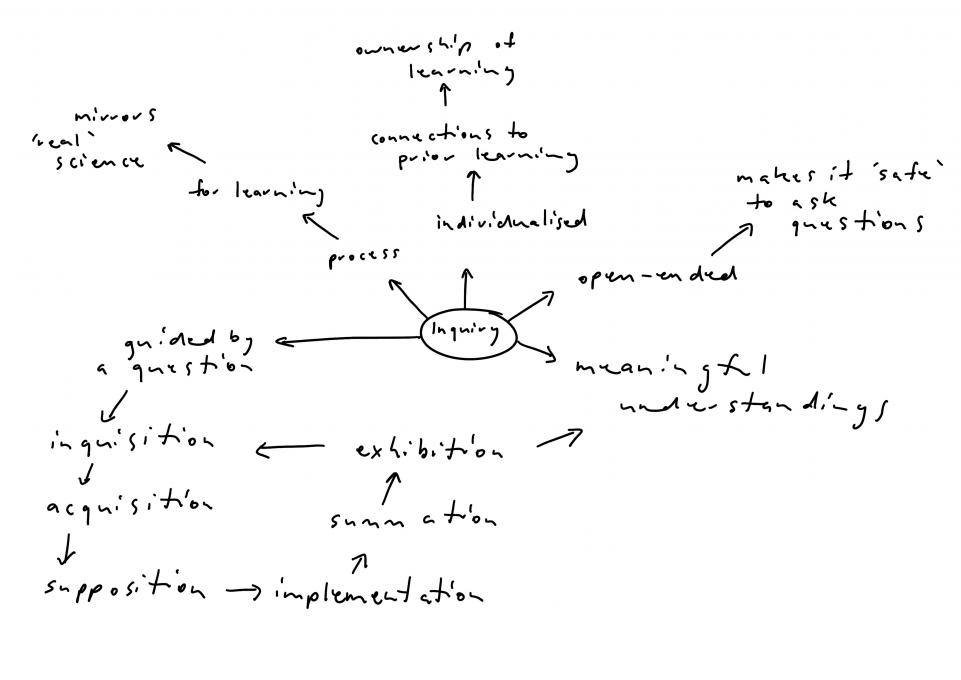
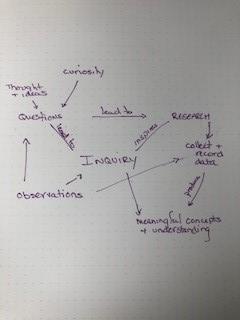
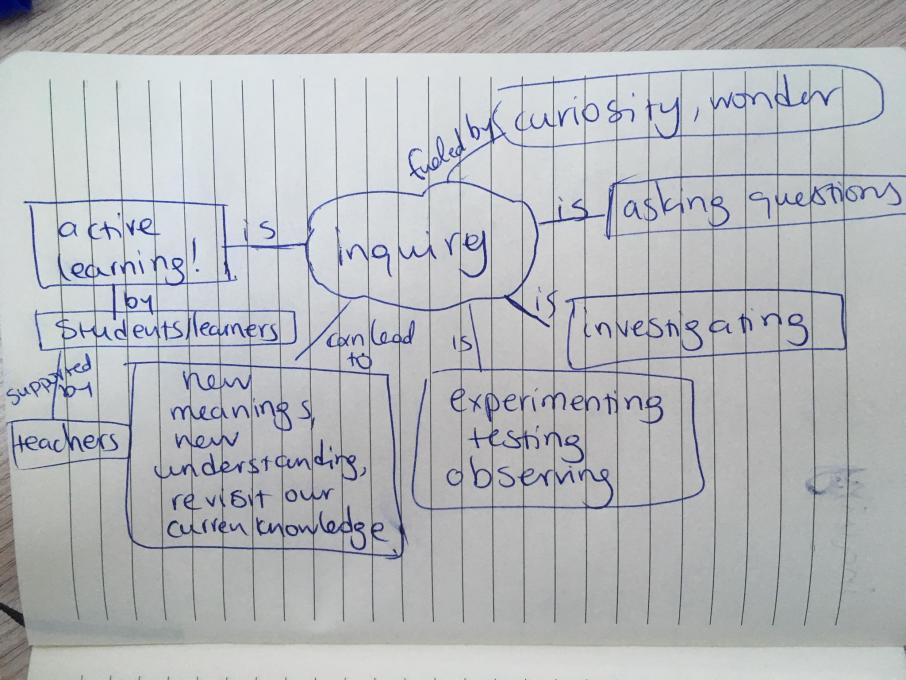 and even may reconstruct their current understanding.
and even may reconstruct their current understanding.